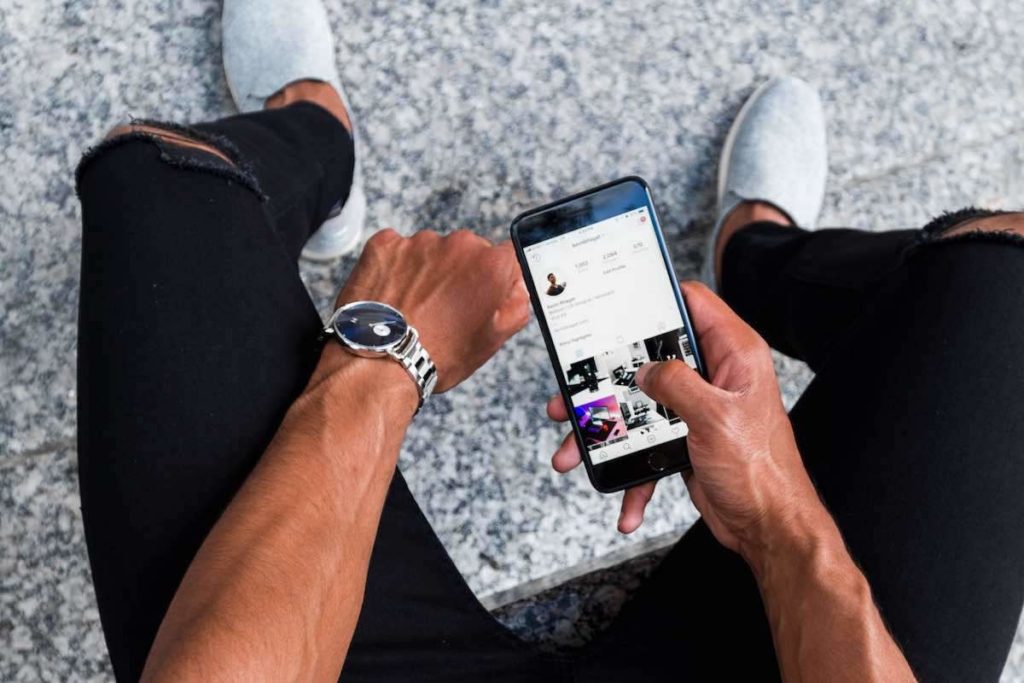How to Not Be Taken Advantage of Financially While Dating
Dating can be a rough and tumble endeavor. You’re trying to find long term girlfriend, to make a connection with another person, to fill a need within yourself, and there are people who will take advantage of that need to enrich themselves.
Worse, people actively trying to scam you are not the only ones who may end up taking something from you. While dating, you want to avoid being taken advantage of financially and emotionally, but at the same time that you protect yourself, you cannot avoid, do not want to avoid, the necessary give and take that will come with a relationship.
If you close yourself off, then no one will be able, or want, to get close to you. You must protect yourself while seeking an appropriate balance between self-preservation and the openness that will make a relationship work. More than just functioning however, you want to find a relationship where your needs are met and you fulfill your partner’s reciprocal needs.
This article will, therefore, give you some great tips on how to not be taken advantage of financially while dating or in an early relationship. What you’ll learn will help you to avoid being the partner who does all of the giving and gets little in return.
If Anyone Asks For Something, Run!
This should be obvious but it bears repeating: no one you are dating should be asking you for things. The online dating world is unfortunately full of people who have no intention of dating you but who would love to use you as an ATM machine for as long as you’ll allow it.
This is a good reason to limit your communications before actually meeting. Most dating scammers will never meet you in person. So be very wary of people who are never available to meet you in person. Also be very careful about continuing to interact with people you cannot meet.
This applies with equal force to attempting to forge a long-distance relationship with someone you met online. If you cannot meet someone within a week or two of the first contact, then seriously consider looking elsewhere. Online prospective dates who are always away, who have things suddenly and repeatedly interfere with dates that you have planned, or who will not commit to meeting, are people you should pass on.
If you do continue talking to someone then be cautious in regards to any requests that they might make. If someone you chat with online asks for money, for a loan, to use your bank account for a transaction, or for gifts, then immediately cut off contact with them and consider a report to the dating venue where you first encountered them.
While you tell yourself that you would never do such a thing, remember thats probably the same thing every person who has been taken advantage of told themselves at the beginning too; no one says I think I’ll be scammed today.
Example: How You May Be Taken Advantage of Online
This sounds too easy but imagine that you meet some wonderful person online. Their picture is pretty, but not ridiculously so. They are interested in what you have to say, they flirt with you, and they suggest that they would very much like to meet when they get back from a business trip they had already set up before they met you.
The texts go back and forth, they report on their business trip, they ask how you are doing, they inquire after the people you have told them about or your pets, and they just generally seem normal and interested in you. You are a human being, you desire an emotional connection, probably a physical one; they knew this about you from the beginning because it is true of everyone. Now you are neatly set up to be taken advantage of.
To be blunt, any feelings you have towards a person you have not met and who has texted you a couple of times a day are utterly premature. Whoever you are messaging with has, with very little effort, perhaps only a few minutes a day, managed to string you along for several weeks.
Furthermore, they have gotten you to reveal details about yourself that make the interactions seem lifelike. Other details they provide, like restaurants or parks or events in your area, can be found from a search engine using the name of your town. What you are experiencing is generally a clumsy, or rarely adept, version of the carnival fortune-teller’s “cold read.”
By asking you guided and obvious questions, and letting you offer details, they can give responses that seem like they know things about you, that they share common traits or interests with you.
The key is to transition from messaging to a physical meeting within a few days of first encountering people. This defeats most online scams as they almost never use real pictures, real places, or will be willing to meet.
Opening Your Wallet On a First Date
Once you meet up with this person, it is up to you to decide how much to spend for your first date. I recommended that you get in, and out, of a first meeting for as little as possible. If you are paying attention to any of the other articles here on EmLovz.com, you know that you should never have your first meeting at a fancy or expensive location. Here’s a great article from Emyli on some basic rules for planning a first date.
First dates do not have to be the cliched coffee date, but they should never cost more than $10. Understand that many first dates do not work out and there will not be a second. You might wish it was otherwise but even the best of us strike out and you do not want to be paying to feed or entertain someone you will never hear from again.
Spending big on a first date not only smells somewhat of overeager desperation, but it also sets up the wrong balance of give and take for the future. Use the first date to get, or reject, a second date but never to show off your ability to spend money.
Second Date Spending Tips
When you get to the second date, you can up the spending (though Emyli recommends not spending any money on a second date) but again, if you are paying any attention to these articles, you know the second date should be something active. Here is another opportunity to spend wisely and frugally.
There are any number of second date ideas that cost little or nothing to put into execution. A hike, for example, will cost you nothing or next to nothing. Attending a street festival is also entirely free although lunch from a food truck might set you back a minor amount.
Antiques fairs can be toured for the cost of admission. Many cities have free concerts that you can bring a picnic to. The point is that you can have a successful second date without having to lay out significant amounts of money. Note also that this applies whether or not you actually pay for the activity. Even if you have a membership, or event tickets fell into your lap, the message you are sending is still one of financial expenditure. Save those things for a little later in the relationship.
Don’t Spend Too Early
Are you starting to ask yourself “is she taking advantage of me financially?” Or have you been wondering what the “normal contribution etiquette” is in today’s dating world?
If you run into someone who constantly expects that your dates will be expensive and extravagant, then perhaps this is a time to consider looking elsewhere. When your first few dates are all expensive then you may find it awkward to transition to some degree of normalcy.
What will the reaction be when your first few dates have been at expensive restaurants, and then you suggest a hike and some trail mix on date #4? It’s not going to be a good reaction because you’ve let your date believe all interactions with you involve pricey endeavors.
However, you do not need to be, nor should you be, comically cheap. You should always offer to pay unless your date insists on sharing (though Em teaches how to gracefully overcome this objection in order to maintain leverage); since you are keeping these dates inexpensive, there is little chance of being taken for more than the cost of a cup of coffee.
It is better to structure inexpensive dates than to be gauche and ask for a date to contribute. There is no harm in paying for small things as long as you do not go make a routine out of extravagant spending or do it too early in your relationship.
The lesson is that your financial outlay should closely track the degree of involvement. By staging your expenditures, you avoid appearing needy or desperate; you do not want to mismatch your financial and emotional investment.
You also need to establish that you have enough in common, a viable bond, with someone to have a good time without resorting to elaborate and expensive activities. You are also protecting yourself from someone who is just along for the ride but who will not stick around when things return, as they must, to normal.
Gift Giving
At some point in your early relationship you will probably want to express your feelings by gift giving. Or, as often happens, it becomes a lot easier to find dates around holidays like Valentine’s Day and gift giving is often a part of that holiday. If you find yourself on a first date around a holiday, then a small gift is a nice gesture. Because that gift should not be worth more than five dollars, challenge yourself to find something that reflects positively on you and shows that you have paid attention to what you have been told. Demonstrate engagement and interest, not your purchasing power.
If your early dates do not fall directly onto a gift-giving holiday, then do not give gifts until after the second date and even then, keep those gifts small. Again, it needs to be stated that anyone who expects gifts early in a relationship is someone to avoid. Flowers are generally considered an acceptable small gift; this is unfortunate because anyone who has shopped for flowers lately knows that you will not get a lot of change back from a hundred-dollar bill. Given the economics of flowers, you might consider assembling a bouquet from the farmer’s market yourself; it requires planning but shows you put in more effort than just popping open an app. Save the surprise flower deliveries for later as a way to continue to give gifts that track your degree of interest while staying away from inappropriate expenditures.
Remember, if you are going to give someone something, and always after meeting them in person several times, the goal is to demonstrate interest not to impress them with your finances. Smaller gifts, chosen to reflect their interests, accompanied by a card which states that you have enjoyed your time with them, is going to be more effective than just whipping out your credit card.
If someone brings you a gift, the response should nearly always be a kind “you didn’t need to do that!” You may run into people who, out of desperation or lack of skill in dating themselves, will try to move the relationship forward to a more advanced stage through gift-giving. They believe that by acting as if the relationship is at a more advanced stage then it magically will be. You need to head this off with repeated protestations that their time is enough, and consider whether someone this needy is suitable for continued dating. If you find yourself at the receiving end of protestations then you have probably misinterpreted the stage of the relationship; it never hurts to try the other person’s shoes on for a while.
The “Eighty-Twenty Rule” & When To Break It
No matter how careful you are, you may end up in a relationship with someone who seems to take a lot more than they give. It feels like you pick up a lot of dinner checks and they never offer. You buy all the movie tickets, all the flowers, send all the cards, and do all of the initiation of activities. At this point you can only sit back and assess. Consider what some people call the “eighty-twenty rule.”
This “rule” states that you should give eighty percent of the effort in a relationship and expect twenty percent in return. If both people follow the eighty-twenty rule, then both people will be receiving as much as they put in to the relationship.
First, throw out the word “rule” because the only person who gets to decide what you will and will not accept is you; there are not actual rules. Your job is to decide what your needs are in terms of giving and receiving and then live with them. That might be eighty-twenty or it might be fifty-fifty or it may be that you are content with someone who, in fact, gives you very little and requires a great deal.
No one can tell you what the correct balance of giving and receiving is. However, if you find yourself constantly giving, and rarely receiving, then you need immediately ask whether this is what you planned on. If your answer is that you will accept any behavior from the other person just to stay in a relationship, then ask why you value yourself so little.
Then you need to revisit your approach to dating so that your relationships develop with giving, nurturing people and the takers and users of the world are rapidly filtered out. Whether you believe it from the web of your draining relationship or not, there is no need to stay where you’re treated as if you have no needs of your own and are only there to be taken from; you can do better.
Assess and Evaluate: How to Not Be Taken Advantage of Financially While Dating
As careful as you have been, sometimes you simply fall for someone who is not particularly giving. This does not necessarily mean they are a bad person; some people were raised by wolves and lack a well-developed sense of awareness about when it is appropriate to reciprocate emotionally. This should be distinguished, somewhat, from financial giving and taking.
Once you filter out the people who are motivated solely by financial gain, you may still have to deal with an economic disparity between you and your mate. If you’re a doctor and you date a freelance aluminum recycler, then you cannot reasonably expect them to pay their way through your lifestyle. Either accept that you will have to dial back the extravagance, pay their way, or you will need to restrict your dating to your economic peers.
As always, the decision as to your conduct is yours but it is a decision you need to make before resentment towards the other person begins to pile up. Remember that making your decision does not mean that resentment will not build up towards you, from your partner, as a consequence of that imbalance.
More important is emotional giving and taking. Eliminating people out for economic gain will probably eliminate a sizable percent of those who will not give emotionally. Despite your best efforts however, you may still find yourself in a relationship with someone who is not emotionally giving. As with finances, the decision is yours as to how much of this behavior you will tolerate.
Not everyone who fails to reciprocate emotionally is a bad person but that does not mean you have to put up with it. You have to decide where on the sliding scale of reciprocity you want to live and then you have to decide whether or not you can live with where you find yourself.
Both of these evaluations require balancing your desires, reality, and the degree of accommodation you can reach with your partner. Do not assume you can get someone to move significantly along the spectrum of giving and taking. Select carefully, pay attention to giving and taking at every stage of the courtship, and lower your defenses enough to give people a chance without lowering them so far that you become prey. If you hit the correct balance, you will find your needs met and your expectations fulfilled.
The most important thing is to value yourself. You do not exist for the sole purpose of providing emotionally, and, or financially for someone else. When you’re single and dating and you’re alone, it seems like any relationship would be better than where you are. While being in a relationship is one of life’s wonderful experiences, not every relationship is worth it. No relationship is worth being taken advantage of, being taken for granted, or living with your needs unfulfilled.
Author Disclaimer: The views expressed in this article do not represent the views of the Social Security Administration or the United States Government. They are solely the views of Ted Stalcup in my personal capacity or as a representative of EmLovz. I am not acting as an agent of the Social Security Administration or the United States Government in this activity. There is no express or implied endorsement of Ted Stalcup or of EmLovz by either the Social Security Administration or the United States Government.





Comments are closed for this article!